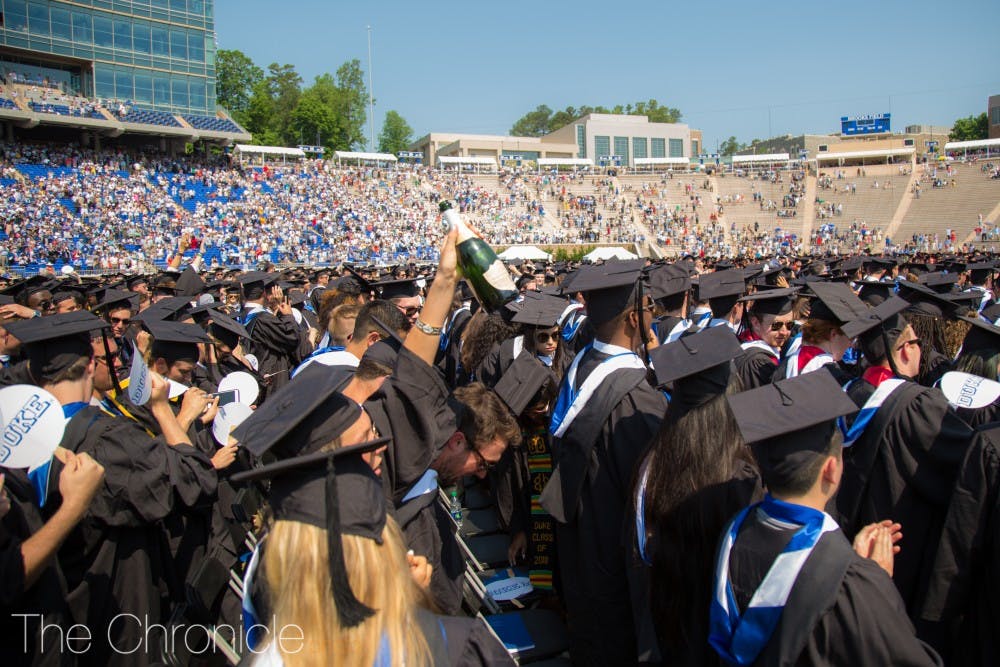Early graduations at Duke are less common than you might think.
Approximately 0.94% of students graduated in three years or less over the past five years, wrote Arlie Petters, former dean of academic affairs for Trinity College and Benjamin Powell professor of mathematics, in an email to The Chronicle.
Only 93 students chose to graduate early between 2014 and 2019. Of those who graduated early, approximately 87% were enrolled in Trinity College of Arts and Sciences, Petters noted, while the other 13% were in the Pratt School of Engineering.
Undergraduates who wish to graduate early must first declare their major, according to Trinity College’s early graduation policy. Students must then complete a “Change in Graduate Date Form,” which they submit to their academic dean, who is responsible for approving the request.
The policy allows students to apply up to six Advanced Placement, International Placement or Pre-Matriculation Credits towards the 34 credits required to graduate. This is in addition to the two AP/IPC/PMC credits that all Trinity College students can apply towards the 34 credit graduation requirement.
Ray Liu, Trinity ‘19—who was originally set to graduate in 2020—capitalized on his AP credits, which allowed him to graduate this past May with a bachelor of science in economics and an innovation and entrepreneurship certificate. He explained why he chose to leave Duke a year before the rest of his class.
“Main factors included being able to save a year of tuition and work on my startup after graduation instead of being in class for another year,” Liu wrote in an email.
Joey Santoro, Trinity ‘19, also decided to complete his degree in three years, graduating in May with a bachelor of science in computer science.
“I felt disconnected and wanted a break from Duke, especially the perfectionism culture and pressure,” Santoro wrote in an email. “I feel as though I had gotten most of the benefits from Duke and another year wouldn’t further my growth in the ways I want to grow.”
Since graduating, Liu has stayed in Durham to work on his startup, PeerKonnect, while Santoro started work as a software engineer in San Francisco.
Frank Blalark, assistant vice provost and university registrar, noted how academic policies that allow more AP credits to be applied towards early graduation present “curricular challenges” and “drawbacks” for an individual’s student experience.
He mentioned that though AP credits allow students to graduate faster, “one must also consider the impact of AP/transfer credits on pre-requisite requirements, term-by-term enrollment patterns, alignment with co-curricular and extra-curricular opportunities, and workforce readiness.”
However, Blalark also recognized how applying AP credits towards graduation requirements makes a student’s academic experience less restrictive and allows for more flexibility in choosing courses outside the major.
Editor's note: This article is a product of a service run by The Chronicle called Chronquiry. A reader submitted a question, other readers voted on the question and The Chronicle got the answer. If you have a question you would like answered about anything related to Duke, visit dukechronicle.com/page/chronquiry or submit a question below:
Get The Chronicle straight to your inbox
Signup for our weekly newsletter. Cancel at any time.

